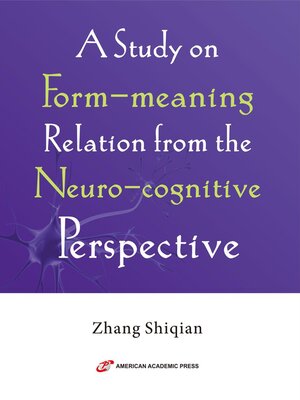
Sign up to save your library
With an OverDrive account, you can save your favorite libraries for at-a-glance information about availability. Find out more about OverDrive accounts.
Find this title in Libby, the library reading app by OverDrive.



Search for a digital library with this title
Title found at these libraries:
| Library Name | Distance |
|---|---|
| Loading... |
Under the perspective of the Embodied Language of Cognition (Glenberg, 1997; Barsalou, 1999; Anderson, 2003), this book proposes a theoretical framework (hypothesis): the form-meaning relation in language shall be a three-dimensional interactive relation between body (the sensory-motor system) — brain (the mental network of the experiential knowledge) — form (the language expression system), rather than be a two dimensional relation between meaning and form.
The main objective of the present book is to test the feasibility of the "body—brain—form" approach, i.e., whether it can effectively explain the cognitive operation and the usage-distribution of the language system. Taking the obtaining event as an example, this book builds a corpus of obtaining verbs and constructions, and uses the "Body—Brain—Form" approach to explain the three-dimensional construal processes from the source of specific "meanings", i.e., the sensory-motor practices, to specific constructions, with brain experiential knowledge being the joint between the two. The quantitative analysis proves the rationality and accuracy of this approach in predicting the usage distribution of different obtaining constructions. Besides, the Cognitive Event Frame (Cheng, 2019, 2020) is also adopted to formulate the core and elaborated conceptual contents of different events, proving the efficiency and flexibility of this approach in formulizing the contents of the experiential knowledge network.







